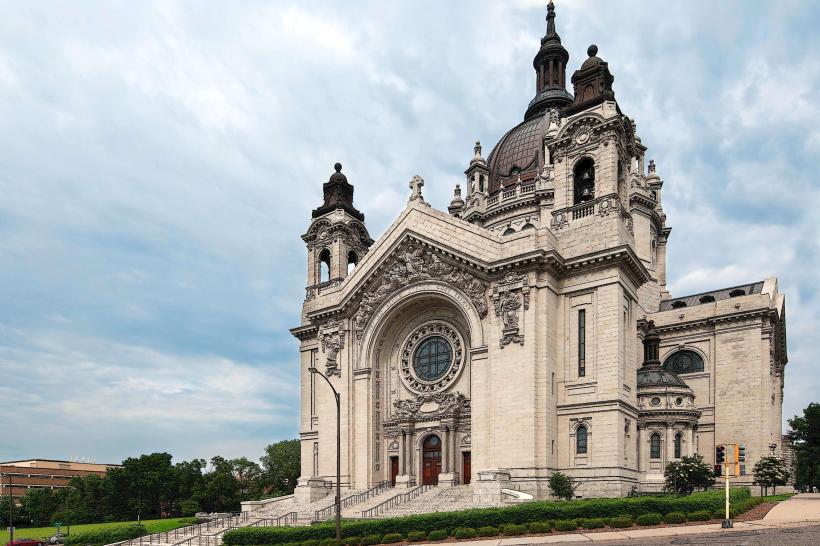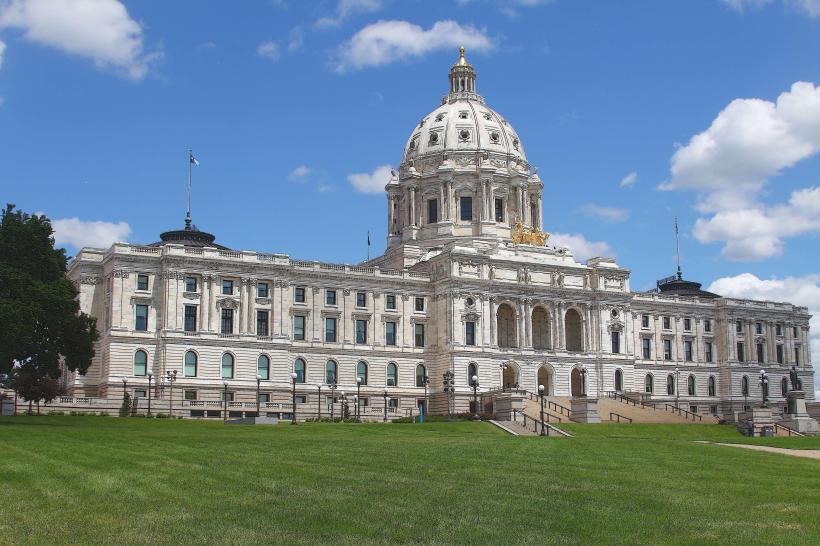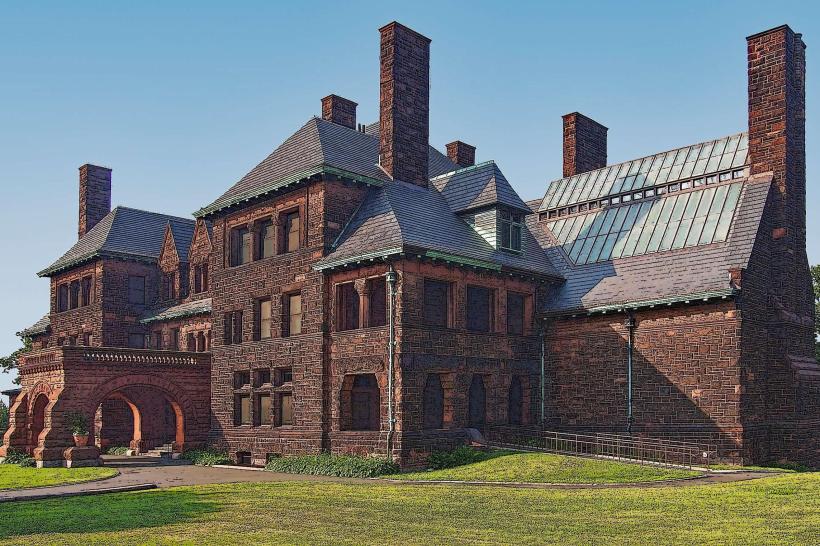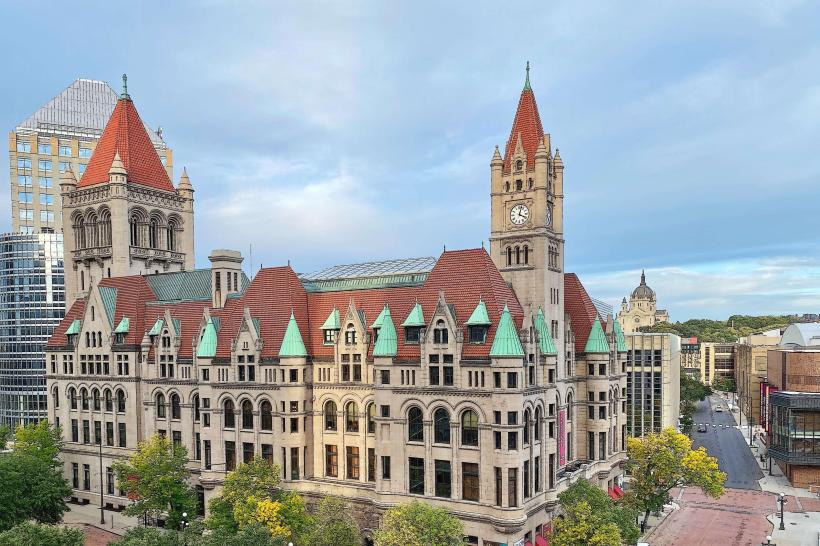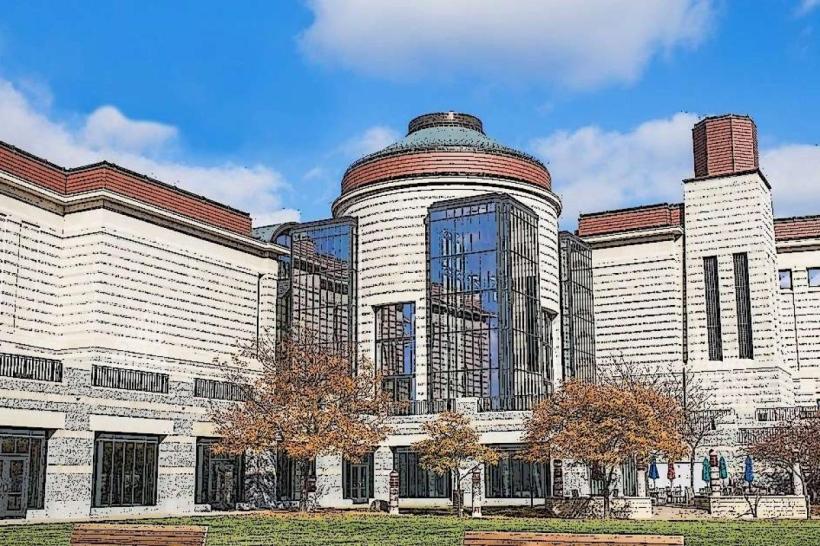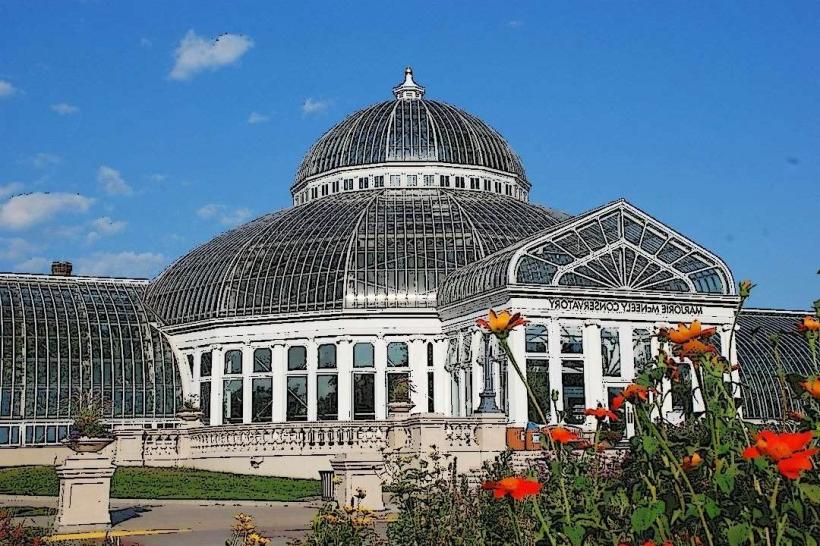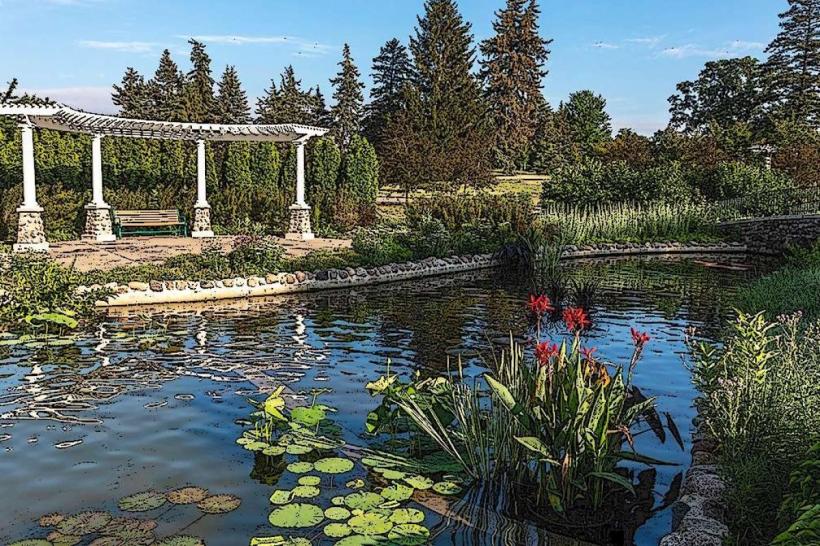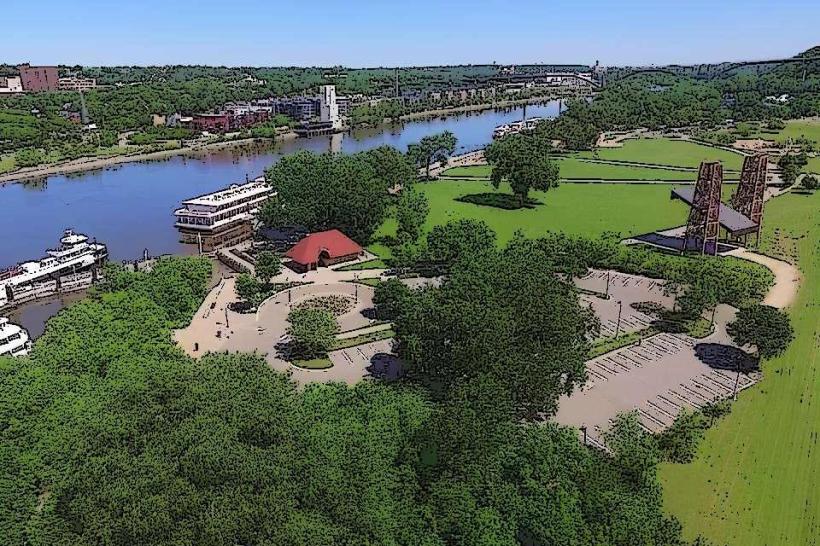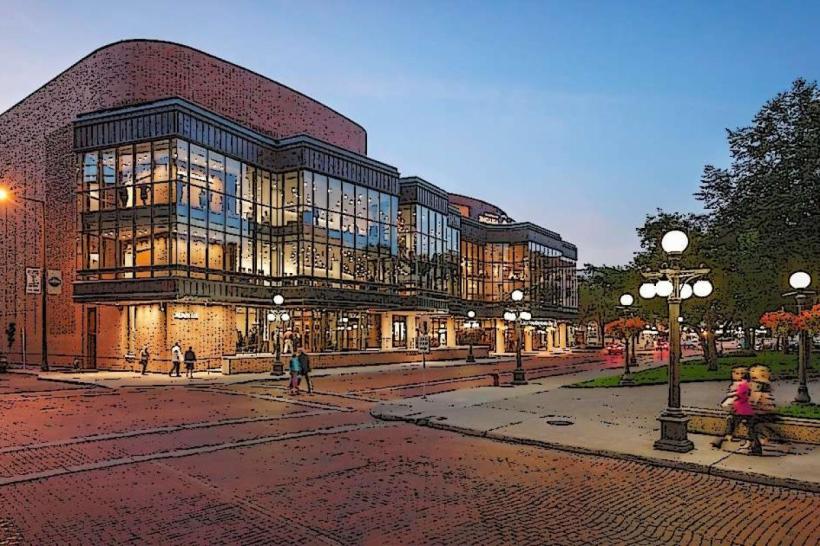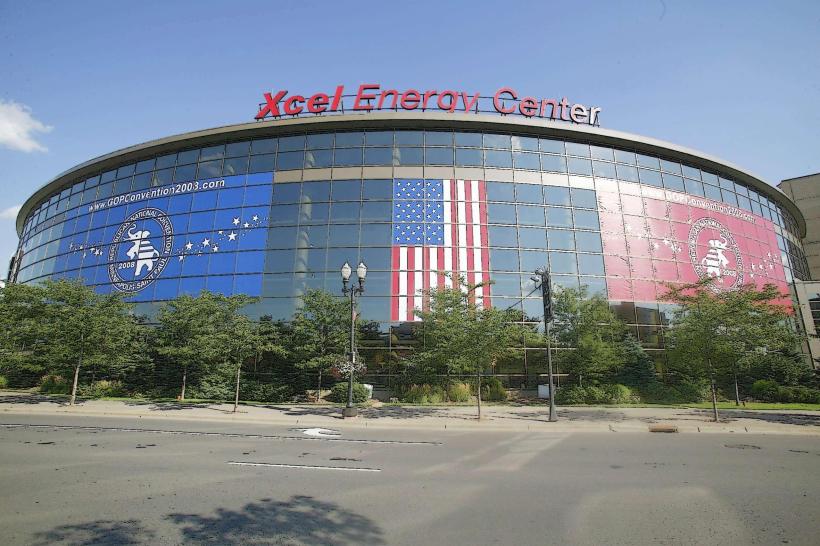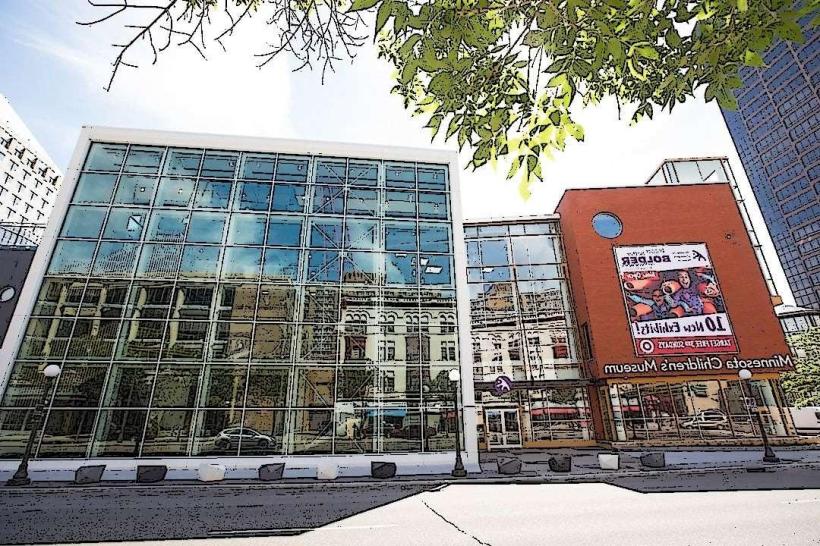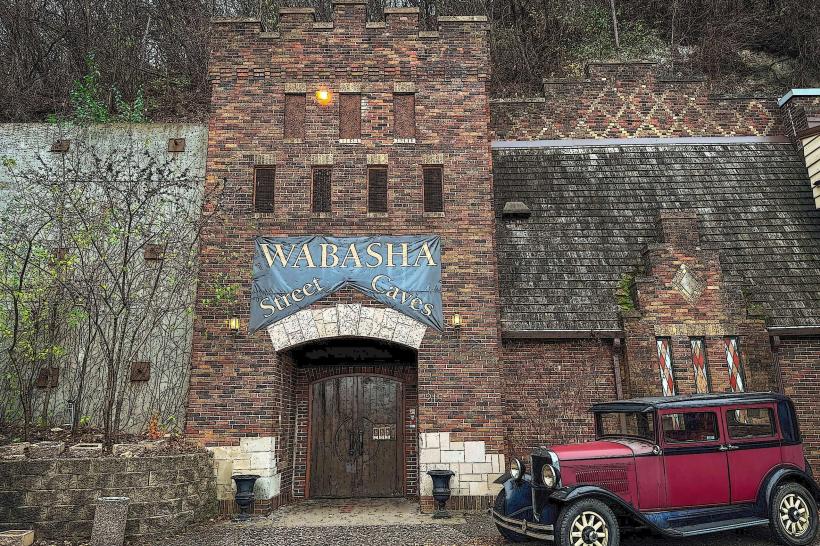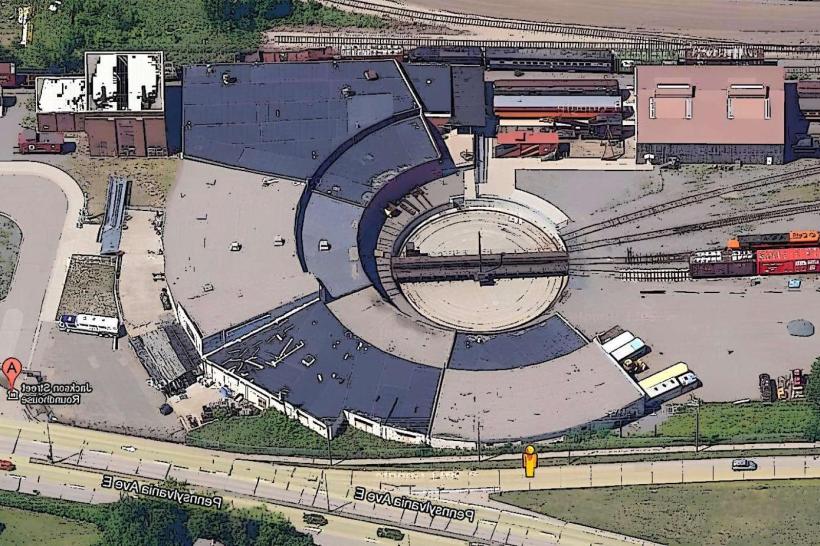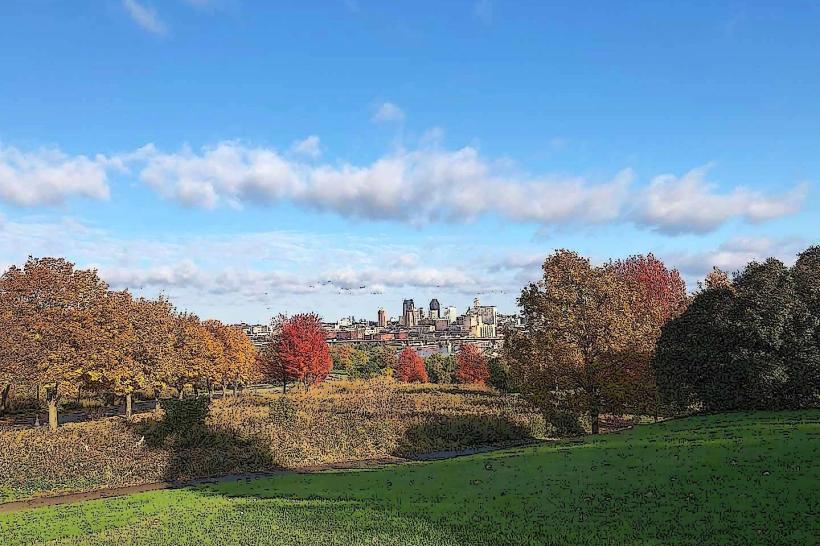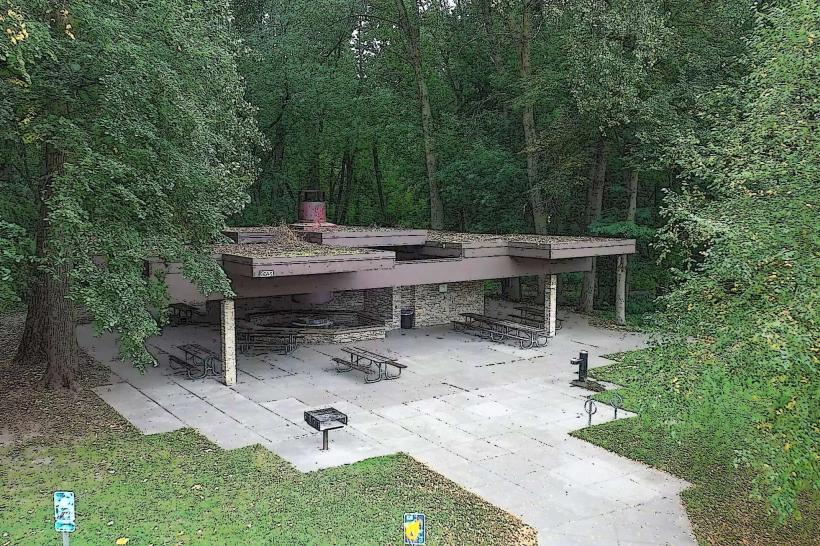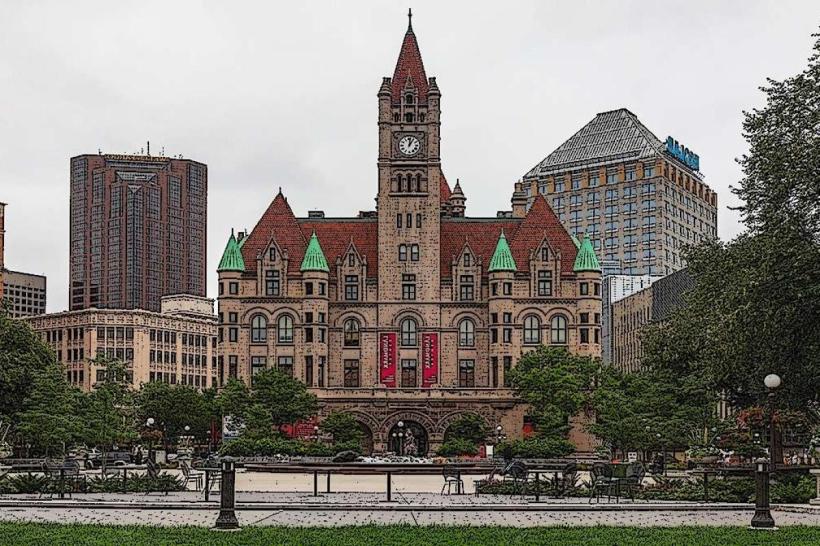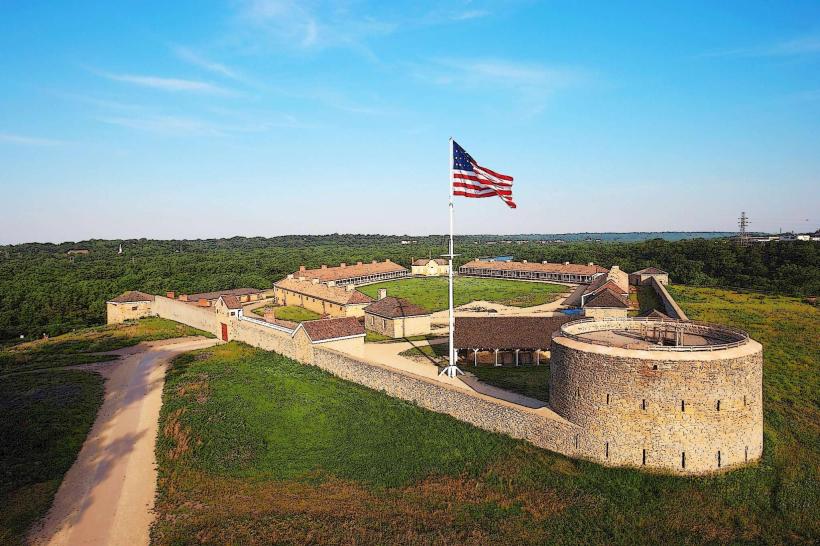Information
Landmark: Summit AvenueCity: Saint Paul
Country: USA Minnesota
Continent: North America
Summit Avenue, Saint Paul, USA Minnesota, North America
Summit Avenue in Saint Paul, Minnesota, is an iconic historic boulevard renowned for its extraordinary collection of late 19th- and early 20th-century architecture, cultural significance, and picturesque streetscape. It is considered one of the longest continuous stretches of Victorian-era homes in the United States and serves as a living museum of American residential design and affluent urban life during the Gilded Age and beyond.
Location and Physical Scope
Stretching approximately 4.5 miles from the Mississippi River in the east, near downtown Saint Paul, to the western residential neighborhoods, Summit Avenue follows a gently curving route that traverses several Saint Paul neighborhoods including the Historic Hill District, Cathedral Hill, and parts of the West Summit Avenue Historic District. The avenue functions both as a residential street and as a destination for architectural tourism, featuring stately mansions, churches, parks, and institutional buildings.
Historical Background
The development of Summit Avenue began in the mid-19th century, around the 1850s, during the early settlement and economic expansion of Saint Paul. The street gained prominence particularly in the 1880s and 1890s, the height of the Gilded Age, when Saint Paul became a key regional hub of commerce, railroads, and industry. Wealthy industrialists, railroad tycoons, and prominent families built elaborate mansions on Summit Avenue, commissioning renowned architects and craftsmen to design residences that displayed their wealth and social status.
Many of the homes and buildings were designed by architects influenced by European styles, reflecting a desire among residents to bring Old World elegance to the American Midwest. The result is an exceptionally rich and diverse architectural landscape.
Architectural Significance and Styles
Summit Avenue is famed for the extraordinary variety of architectural styles represented along its length. The avenue showcases some of the finest examples of residential design from the Victorian era and early 20th century, including:
Queen Anne: Characterized by asymmetrical facades, complex rooflines with turrets or towers, ornate woodwork, patterned shingles, and expansive porches.
Romanesque Revival: Noted for heavy stone masonry, rounded arches, thick walls, and dramatic, fortress-like appearances.
Beaux-Arts: Emphasizes symmetry, classical details such as columns and pediments, and grandiose scale and decoration.
Tudor Revival: Distinguished by steeply pitched roofs, half-timbering, and brick or stone exteriors, evoking medieval English architecture.
Colonial Revival: Incorporates classical proportions and decorative elements inspired by early American colonial architecture, including symmetrical fronts and columned porticos.
The avenue’s architecture is notable not only for its stylistic diversity but also for its exceptional preservation, with many homes meticulously maintained or restored to their historic condition.
Notable Landmarks and Residences
Several landmark buildings along Summit Avenue highlight the avenue’s historical and cultural importance:
James J. Hill House (240 Summit Avenue): This National Historic Landmark mansion was the residence of James J. Hill, a prominent railroad magnate. The Romanesque Revival mansion, completed in 1891, is famous for its robust stone construction, elaborate interior woodwork, and art collection. Today, it functions as a museum showcasing Hill’s legacy.
Cathedral of Saint Paul (201 Summit Avenue): An architectural masterpiece of Beaux-Arts design, this cathedral serves as a visual and spiritual anchor at the eastern terminus of Summit Avenue. Its grand dome and classical detailing make it one of the most recognizable landmarks in Minnesota.
F. Scott Fitzgerald House (599 Summit Avenue): The birthplace and early home of the celebrated American author F. Scott Fitzgerald, the house provides insight into his formative years and is part of the literary heritage connected to the avenue.
Minnesota Governor's Residence (1006 Summit Avenue): An elegant Colonial Revival mansion that serves as the official residence of the state’s governor, representing the avenue’s continued role in state and civic life.
University Club of St. Paul (420 Summit Avenue): A historic social club frequented by the city’s elite, housed in a stately building exemplifying the grandeur of Summit Avenue’s social scene.
Preservation Efforts and Challenges
Summit Avenue is protected through its designation as part of the Historic Hill District and West Summit Avenue Historic District, both listed on the National Register of Historic Places. These designations help ensure that alterations or developments maintain the historical integrity and architectural character of the area.
In recent years, city planners and community stakeholders have worked on initiatives to balance preservation with modernization. A notable project approved in 2023 involved redesigning sections of the avenue to include a raised, protected bikeway separated from motor vehicle traffic. This plan aims to enhance pedestrian and cyclist safety and encourage alternative transportation but has raised concerns over potential tree removal, parking space reductions, and the impact on the historic streetscape. These debates highlight the ongoing challenge of maintaining Summit Avenue’s historic charm while adapting to contemporary urban needs.
Visitor Experience
Summit Avenue is a popular destination for visitors interested in history, architecture, and scenic strolls. Its broad sidewalks, mature trees, and wide boulevard contribute to a park-like setting. Visitors can explore the avenue on foot or by car, with several guided walking tours offered by the Minnesota Historical Society and other local organizations that provide detailed commentary on the homes, history, and notable residents.
The Summit Overlook Park, located near the eastern end of the avenue, offers panoramic views of the Mississippi River Valley and downtown Saint Paul, providing a picturesque spot for photography and reflection.
The avenue is particularly stunning during the fall when the mature trees lining the street burst into vivid autumn colors, enhancing the historical ambiance.
Recent Real Estate Highlights
The avenue continues to be a prestigious residential address. For example, in early 2024, an 1884-built High Victorian estate on Summit Avenue was listed for nearly $2 million. The mansion spans almost 12,000 square feet with features such as an oak-paneled library, green marble sunrooms, a modern gourmet kitchen, a sauna, and a refinished garage with space for five vehicles. The property also offers outdoor amenities including a balcony, patio, and meticulously landscaped grounds, reflecting the blend of historic grandeur with modern living.
Cultural and Social Importance
Summit Avenue is more than an architectural showcase; it represents the social history of Saint Paul’s elite, their aspirations, and contributions to the city’s development. The avenue’s mansions and institutions served as homes, gathering places, and symbols of cultural status.
Today, Summit Avenue maintains its prestige and continues to attract residents who value its historical significance and aesthetic beauty. The street acts as a cultural link between Saint Paul’s past and present, offering educational opportunities and fostering community identity.
Summary
Summit Avenue is a premier historic and architectural landmark in Saint Paul, Minnesota. Its extensive and well-preserved collection of Victorian and early 20th-century homes, along with notable public buildings, offers a vivid window into the city’s Gilded Age prosperity. With its rich history, architectural diversity, and scenic beauty, Summit Avenue stands as a must-visit destination for historians, architecture enthusiasts, and travelers seeking to experience a quintessential American historic boulevard. Ongoing preservation efforts and sensitive modernization plans aim to protect its legacy while accommodating contemporary urban life.

